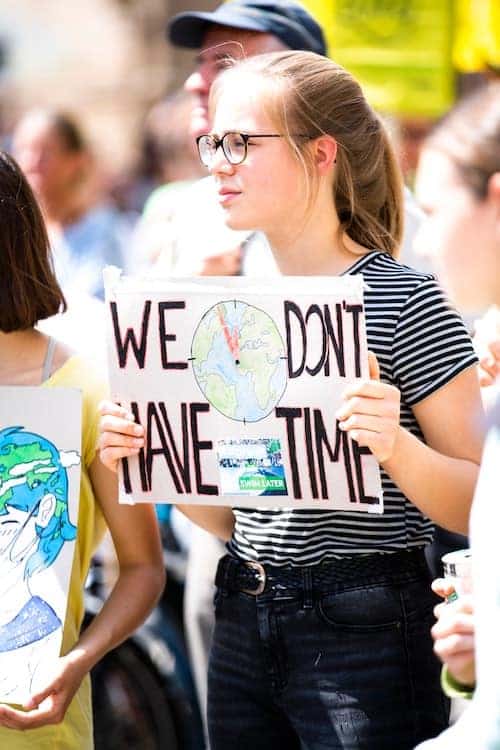What is Eco-Anxiety?
What is Eco-Anxiety?
The term ‘eco-anxiety’ refers to a serious mental health condition in which one constantly worries about ecological damage or environmental disaster. It is the state of persistently worrying about the future of Earth. There are several terms related to this sickness- ‘eco angst’, ‘climate change distress’, ‘ecological grief’, and ‘eco trauma’. Though this term is not listed officially in the Diagnostic and Statistic Manual of Mental Disorders, it is considered to be under ecopsychology. This is the branch of mental disorders that deals with people’s psychological relationships with nature and how it affects them.
 Symptoms of Eco-Anxiety
Symptoms of Eco-Anxiety
Many times, on hearing about the permanent changes that man has caused to nature, we feel alarmed about the future of our Earth. You may feel terribly traumatized by the harm done to the environment and other natural species. There are several other symptoms that can show that you are suffering from eco-anxiety.
Other potential symptoms include:
- Fatalistic thinking
- Frustration and anger towards people who do not acknowledge the harm done to the climate. Many times, this anger is also vented out on the older generations for not doing anything to help the cause.
- Shame or guilt regarding your own contribution to this harm
- Existential dread
- Feeling of anxiety, depression, or panic
- Post-traumatic stress disorder after experiencing the effects of resulting climate change
- Sadness and grief over the loss of wildlife population and natural environments
- Highly obsessive images and thoughts regarding the climate
These feelings and symptoms can cause further secondary problems, which can be listed as follows:
- Appetite changes
- Changes and problems in sleep patterns
- Difficulty in concentration
An increase in stress can also cause changes in a person’s social relationships, especially if they do not share the same views with the person. Many times, in order to distract himself or herself, the person may indulge in some less-than-ideal strategies like alcohol or substance abuse.
 Where does it come from?
Where does it come from?
Climate change has today become a global, as well as a personal, concern. There are certain driving factors that fuel eco-anxiety in people. Let us discuss some of them in detail:
Lived experience
There are many in this world who, instead of hearing about climate change, have lived through it. These may involve anything from hurricanes to wildfires or some other natural calamity that may have destroyed your home. In addition, there are many who have lost their loved ones in these same disasters. These losses can never be repaired and have an extreme effect on the mental well-being of a person.
Certain other gradual effects such as increased rainfall and extreme heat may draw less notice, but they can’t be discounted either. Their effect may range from causing frustration and irritability to reduced sunlight. Without ample sunlight, one is at constant risk of mood-related seasonal depression.
Extensive news coverage
The overwhelming media coverage of environmental destruction is often interpreted as a positive sign of greater awareness among people. However, this doomsday marketing may not always be a part of positive motivation. It can worsen the shock and despair among people suffering from eco-anxiety and cause deep despair among some of them.
Regret over own carbon footprint
It becomes very easy for a person already suffering from anxiety to get pushed into deep trauma regarding his or her own contribution to this disaster. This feeling of regret and guilt, in addition to the feeling of powerlessness, can create a deep trauma among people. This may further make your own actions seem insignificant and taking any action difficult.
People at risk
Eco anxiety can affect any person. However, there are certain groups that stand a higher chance of suffering from climate change distress because of their greater vulnerability. These groups include:
- People living in regions facing the high geological risk
- Indigenous tribal communities
- Socio-economic disadvantaged communities
- People with chronic health problems or disabilities
- Communities relying on hunting, fishing, or farming
 How to manage
How to manage
Though climate change may look like something of an impossible magnitude, there are some actions that can be taken to manage the eco-anxiety associated with the same.
- Analyze and adopt a greener lifestyle which will help in cultivating a better sense of self.
- Staying optimistic to break the negative cycle of thinking associated with severe and chronic anxiety.
- Foster a stronger personal connection with the environment.
- Know when to disengage from news coverage.
- Seek help from a mental health specialist.
Schedule an appointment with one of our therapists specialized in anxiety in Denver and nearby cities. You can schedule by calling our receptionist Monday through Friday 8:30am-5pm at 303-986-4197 or by email info@westsidebehavioral.com.
